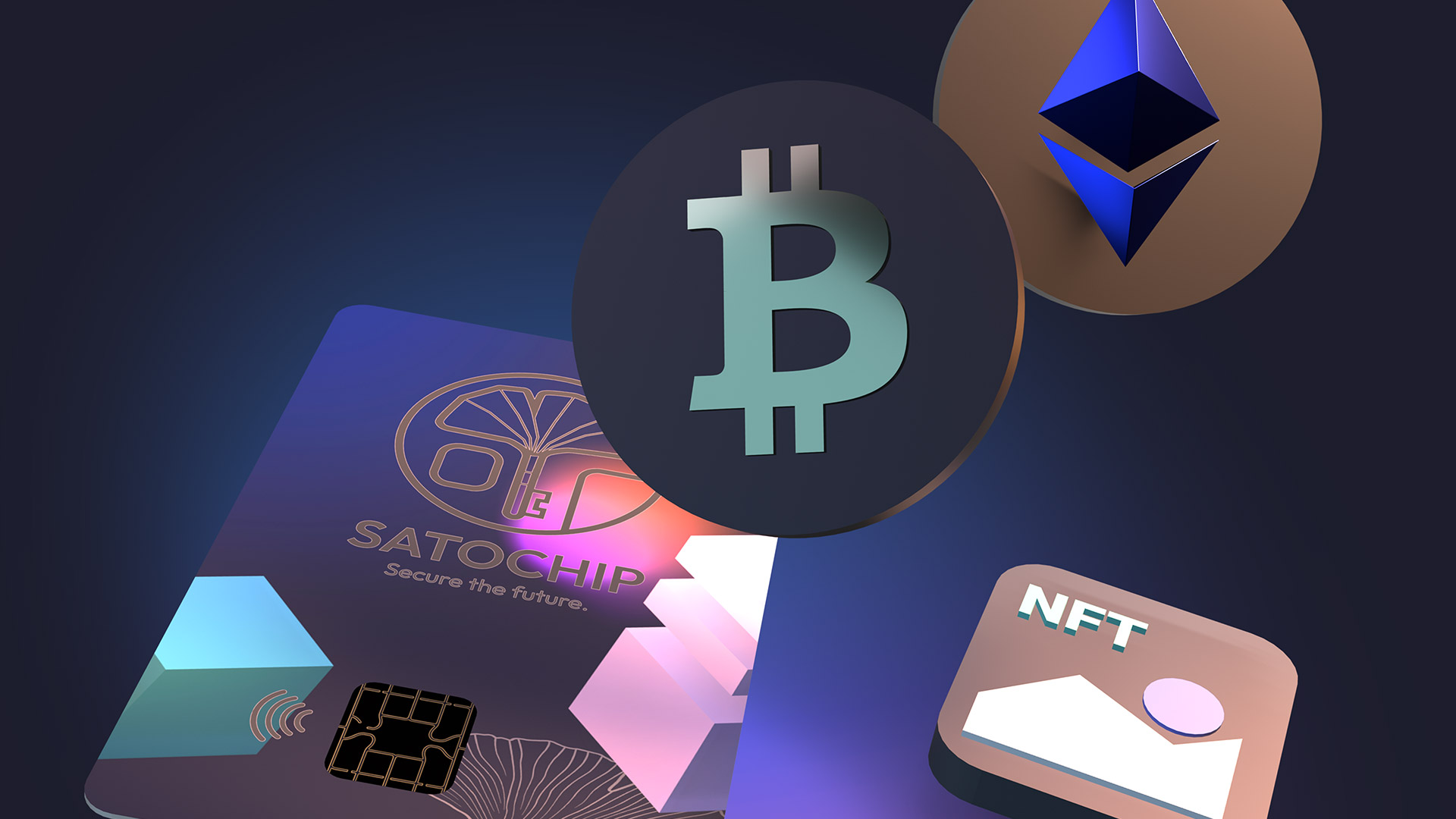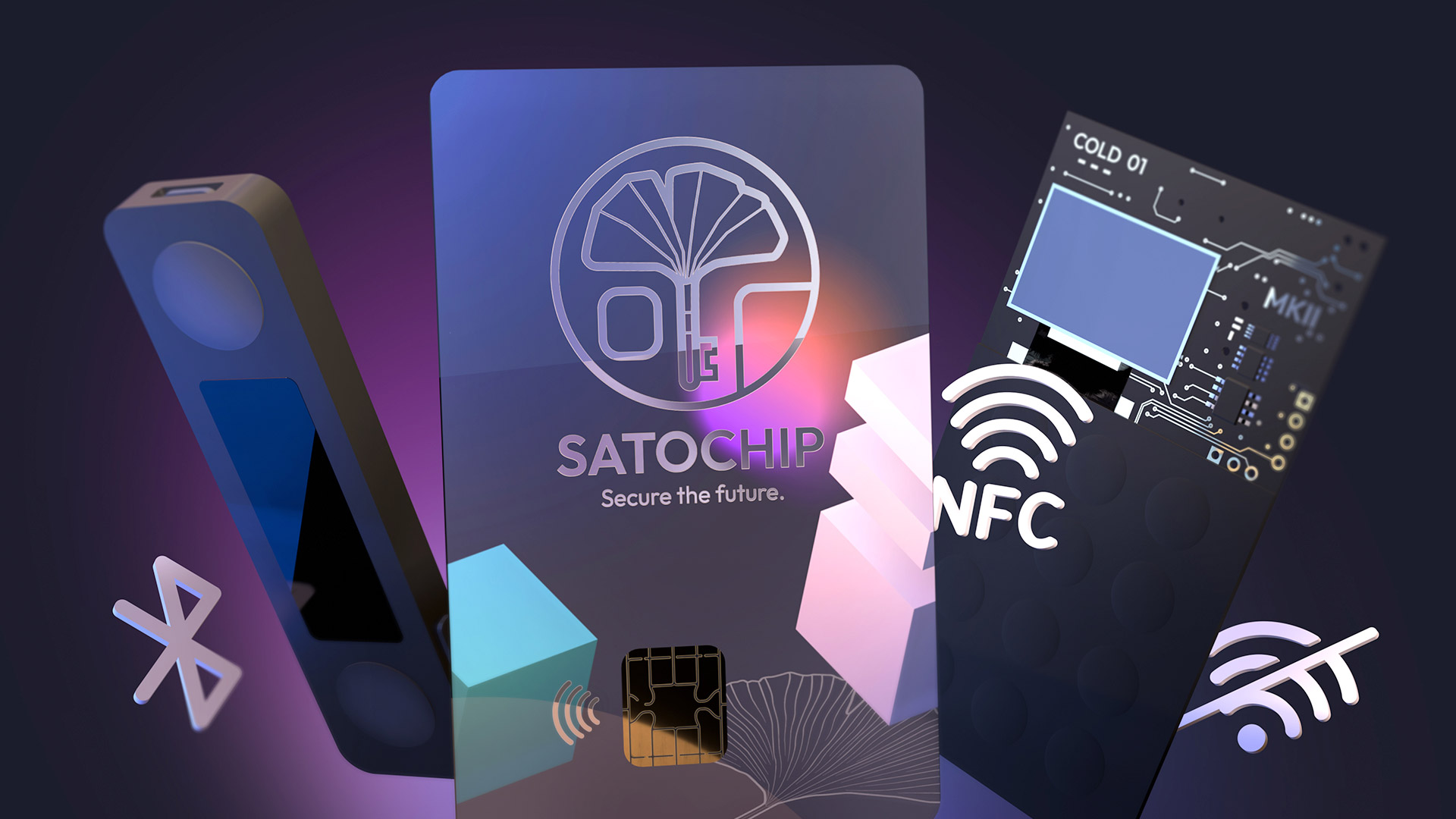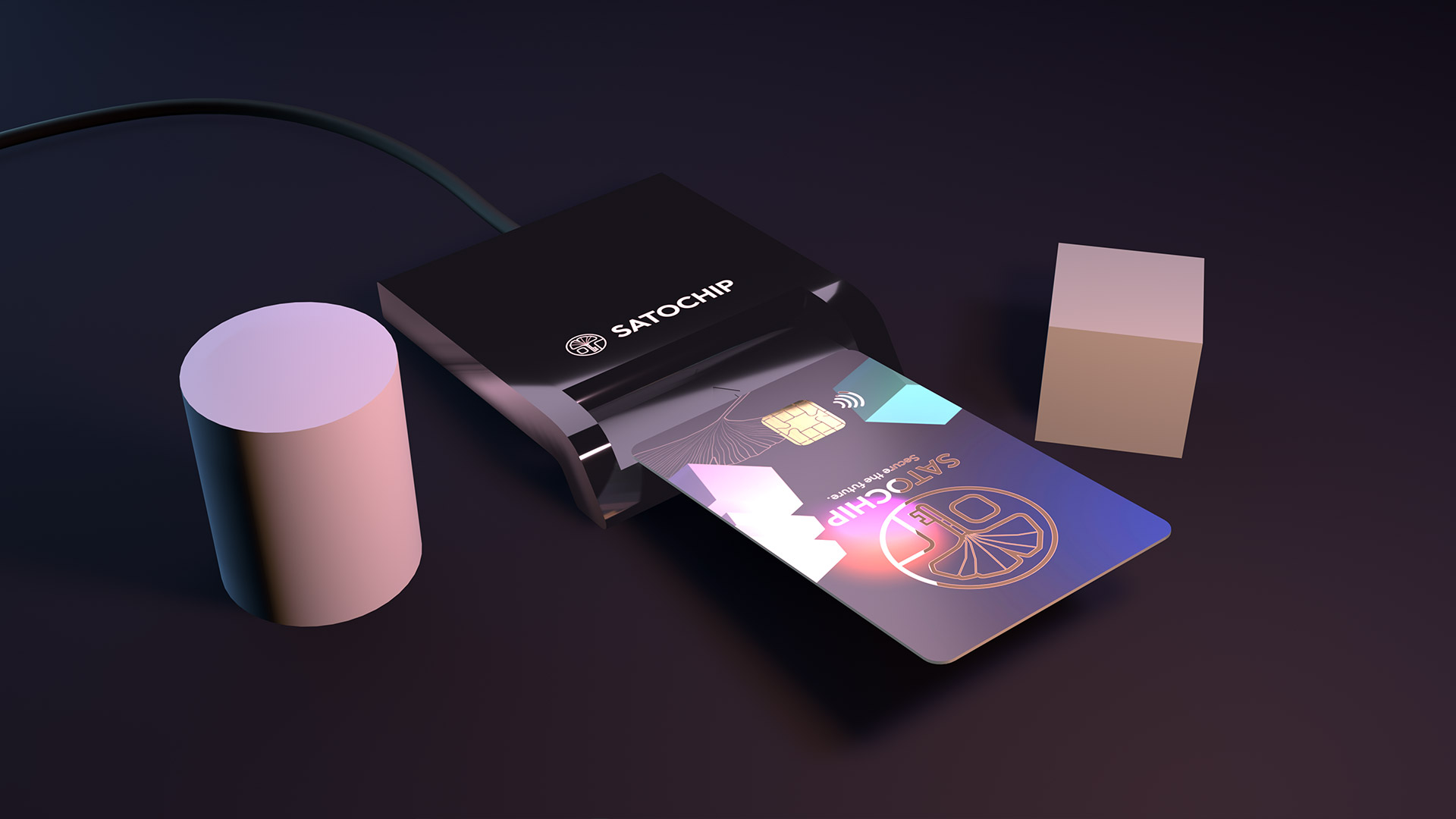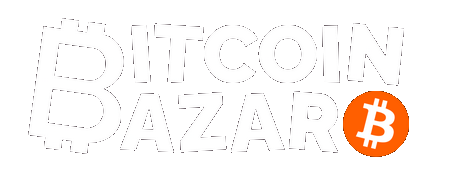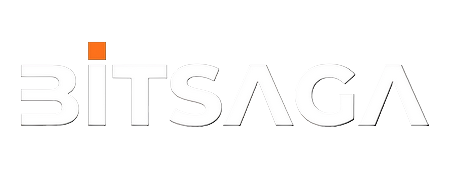Hardware solutions for your cryptocurrencies
Be self-custody, protect your Bitcoin and cryptocurrencies using the Satochip hardware wallet. A NFC smartcard equiped with an EAL6+ certified secure element.
For the highest level of security, combine it with Seedkeeper, the seedphrases manager.
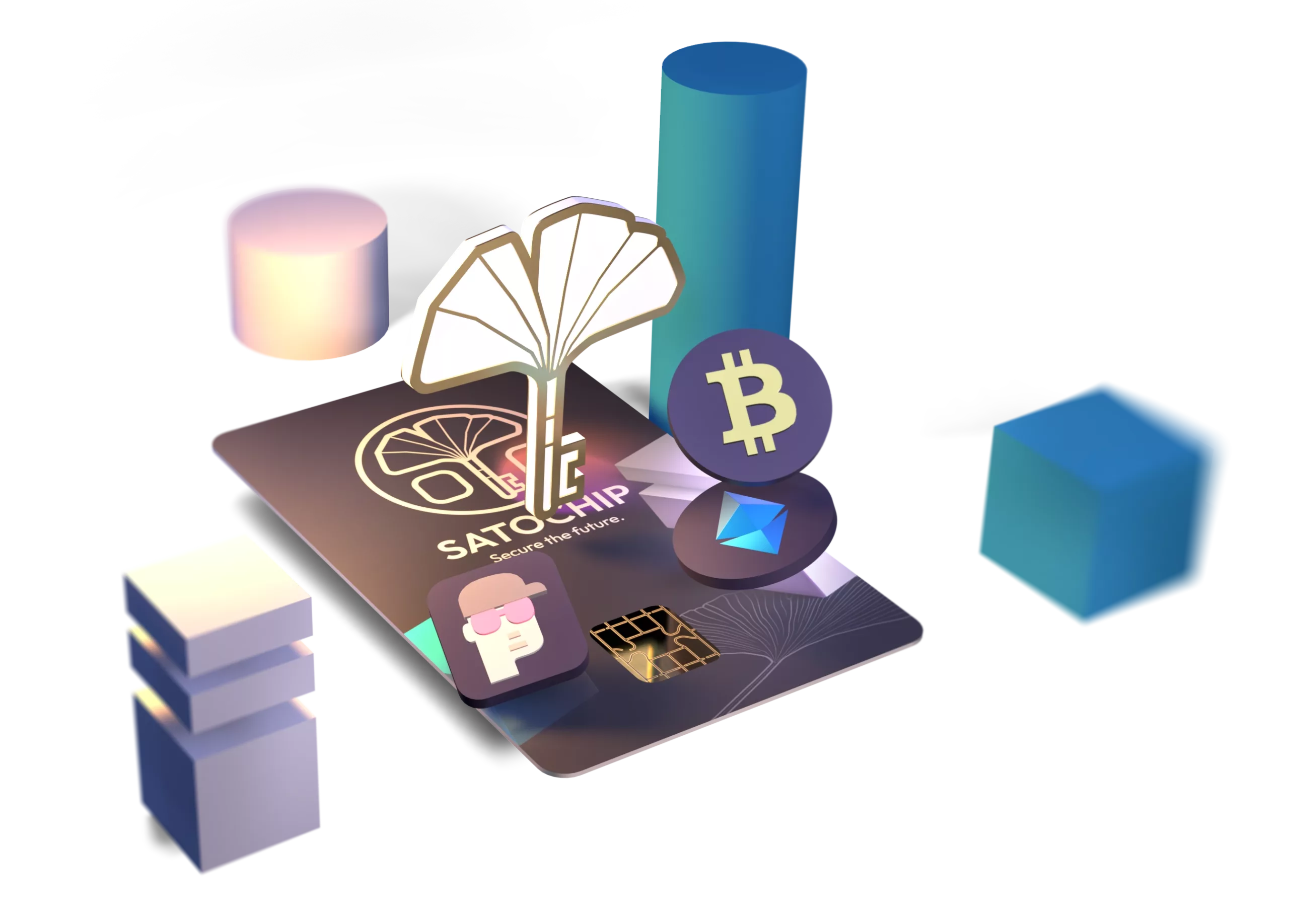

Manage your assets
from mobile and desktop
Satochip’s software solutions are open-source and non vendor locking. It relies on well-known software clients such as Electrum, Sparrow Wallet, Uniblow or the Wallet Connect protocol. Our solutions are available for Linux, MacOS and Windows, as well as IOS and Android.

Satochip Academy
Get the most out of your favorite devices.
Expand your crypto knowledge with the Satochip Academy.
Good to know…
A crypto wallet is like your leather wallet. If you want to hodl Bitcoin, Ethereum, NFTs or any other cryptocurrencies then you need a wallet to store them.
When you set up a wallet, you automatically get a pair of cryptographic keys; the public key and the private key. These keys enable you to authenticate and validate transactions, or view your account balance.
There are two types of wallet: hardware and software. A software wallet will store your pair of keys locally on your phone, tablet or computer, while the hardware wallet will store them in a highly secure chip.
The materialization of cryptocurrency is represented by a pair of cryptographic keys: the public key and the private key.
Once you have these keys, you are the one and only owner of your cryptocurrency.
The public key is comparable to your bank account number. It enables you to receive cryptocurrencies. You can share it to third parties without compromising the security of your wallet.
The private key, on the other hand, is strictly personal. It allows you to spend the coins and tokens in your wallet. It must never be divulged, and must be stored in a secure element.
There are two types of wallets: hot and cold.
The hot wallet is a software application installed on your computer or smartphone and connected to the Internet. Most often free of charge, this type of wallet is ideal for everyday handling. It’s convenient, mobile and easy to use.
But the threat is real! Your private keys are stored locally on your equipment, accessible to viruses and other Internet threats.
Your cold wallet, on the other hand, is a dedicated, offline device. Your private keys are isolated in a specially designed piece of hardware, called the Secure Element.
Satochip is a cold wallet, also known as a hardware wallet. The chip acts as a secure element, protecting your private keys from online threats.
You’ve probably heard this “not your keys, not your coins“.
Indeed, as long as you’re not the sole custodian of your private keys, your cryptocurrencies probably don’t belong to you.
When you leave your cryptocurrencies on an exchange platform, you’re delegating your wealth to that platform. It can, at any time and arbitrarily, cut off access to your account, depriving you of your assets. When you use a hot wallet, such as a web extension, your private keys are stored on your computer. They are therefore vulnerable to Internet threats.
So yes, if you value your cryptocurrencies, use a hardware wallet to store your private keys offline, in dedicated equipment.
There are many phrases you’ll come across on your Bitcoin journey, one of them is “Don’t trust, verify!“.
Bitcoin is open source. The open source nature of a solution gives power and independence back to people.
Satochip is driven by this noble mission and offers fully open source solutions. Everyone is welcome to study and verify the content.
Open source matters! Don’t trust, verify!

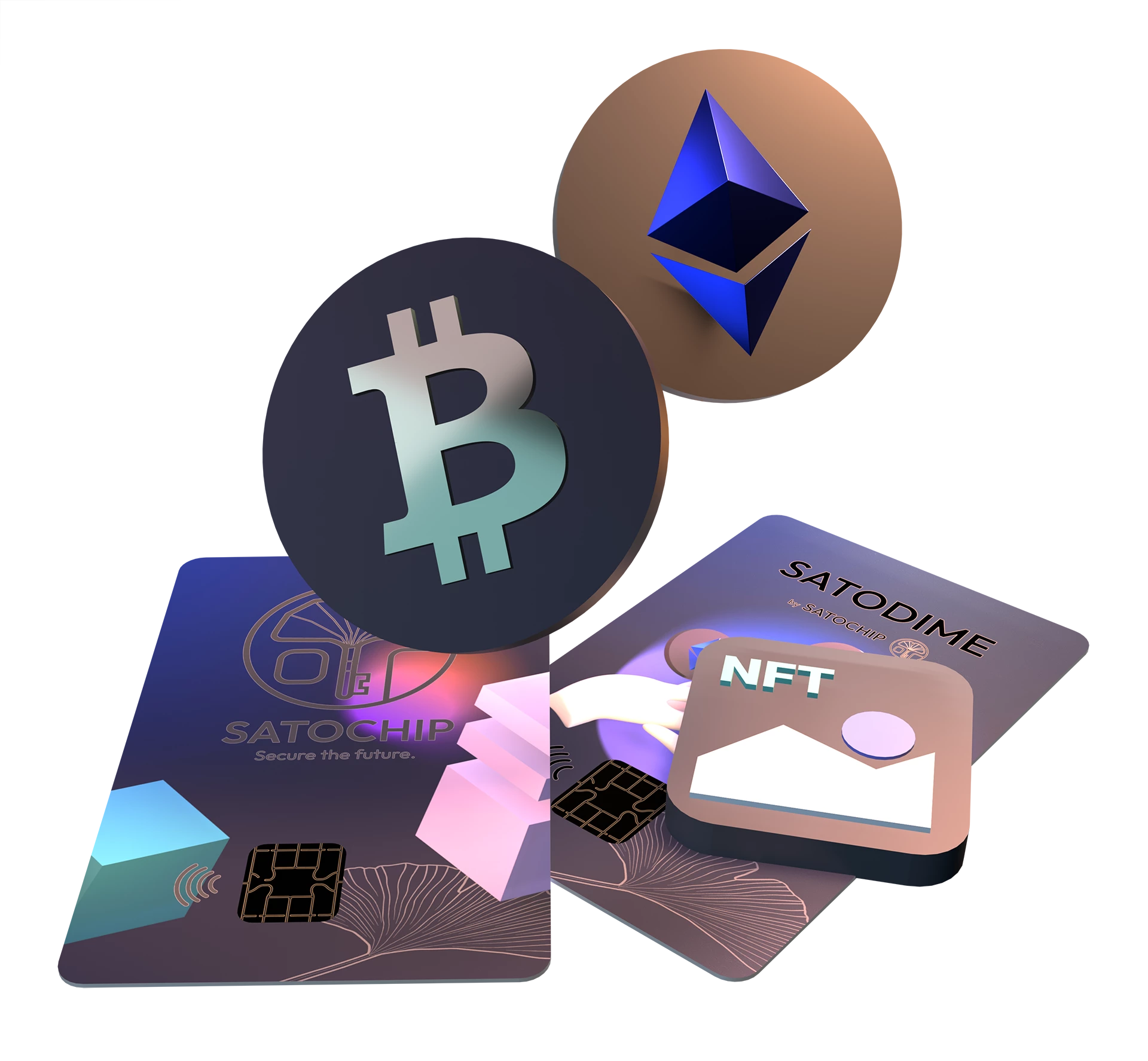
Tokens available
Satochip
Your hardware wallet supports: Bitcoin ($BTC), Litecoin ($LTC), Bitcoin Cash ($BCH), Ethereum ($ETH), ERC-20 and ERC-721 tokens (NFTs), Binance Coin ($BNB) and the BEP-20 tokens. As well as all EVM-compatible blockchain tokens. It’s more than +1000 coins or tokens.
Satodime
Your giftable cold storage solution supports: Bitcoin ($BTC), Counterparty ($XCP), Litecoin ($LTC), Bitcoin Cash ($BCH), Polygon ($MATIC), Ethereum ($ETH), ERC-20 tokens, and ERC-721 tokens (NFTs).

Official products resellers
Official partners
Subscribe to the newsletter








